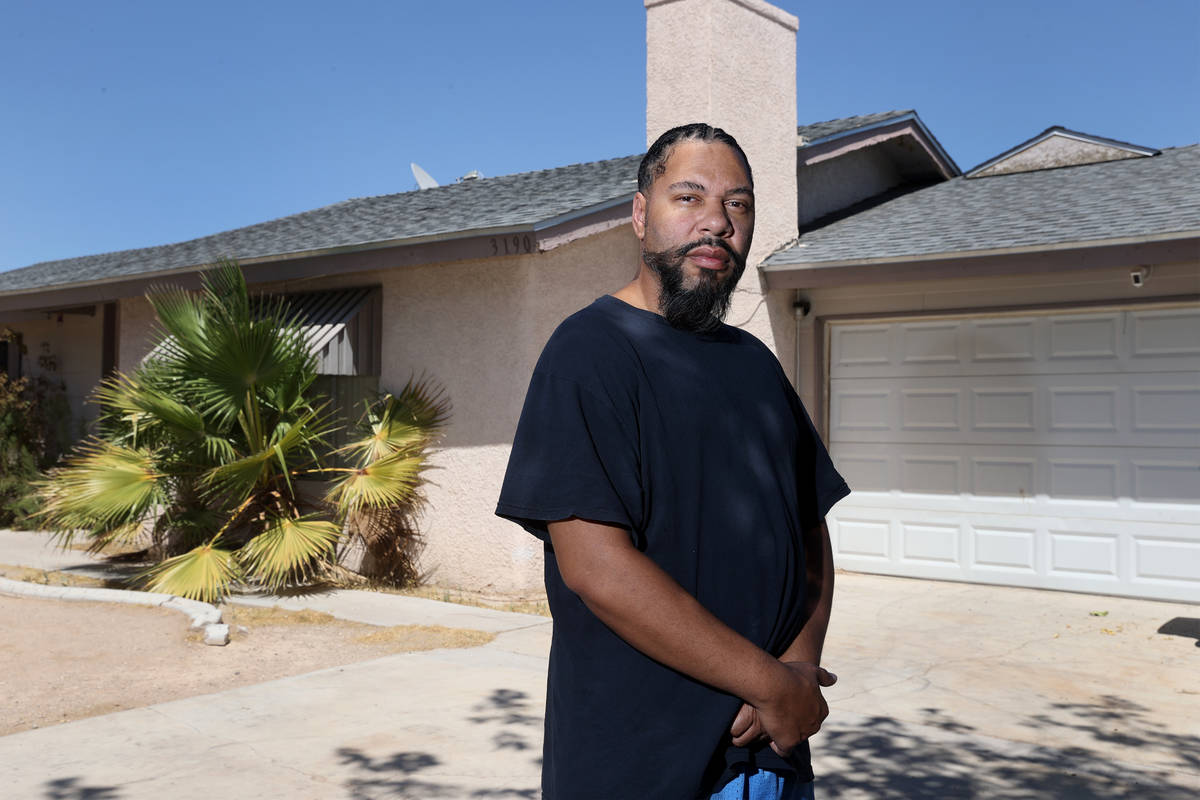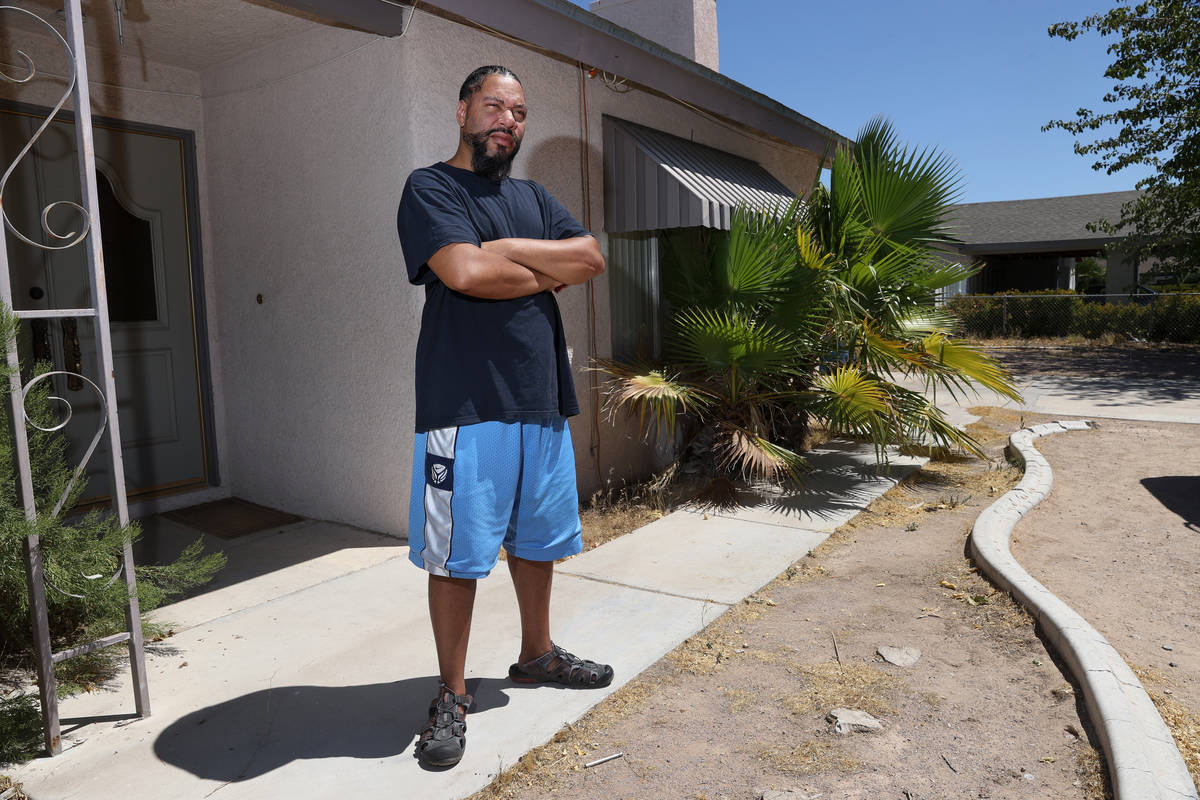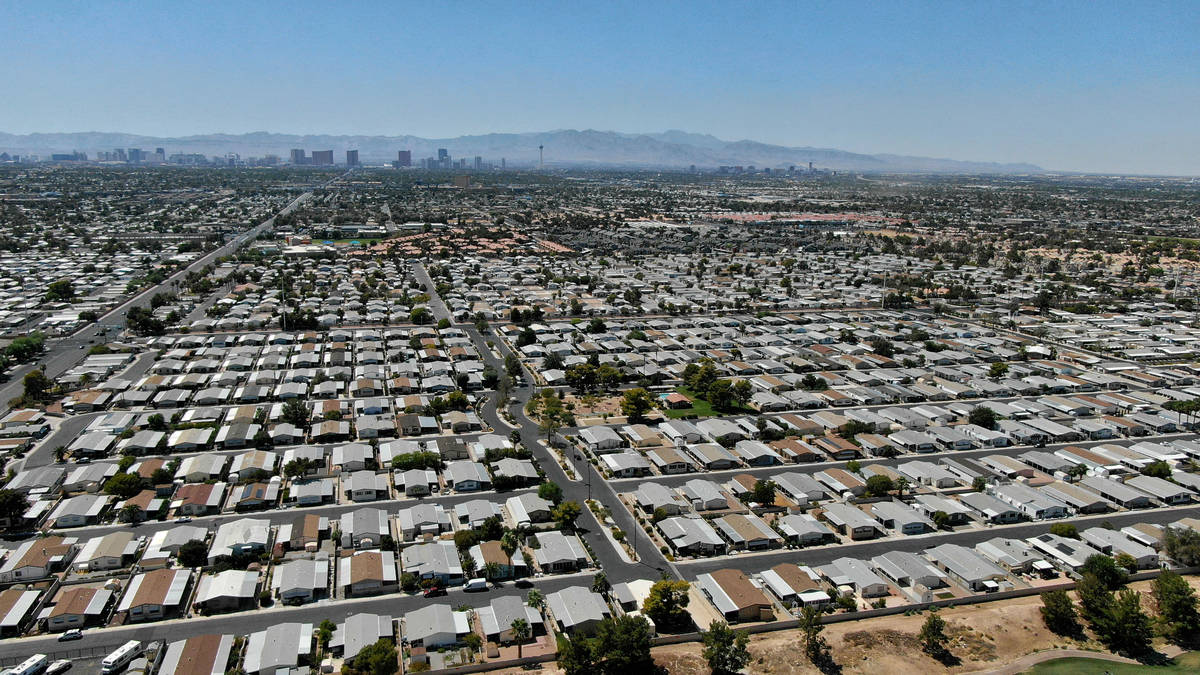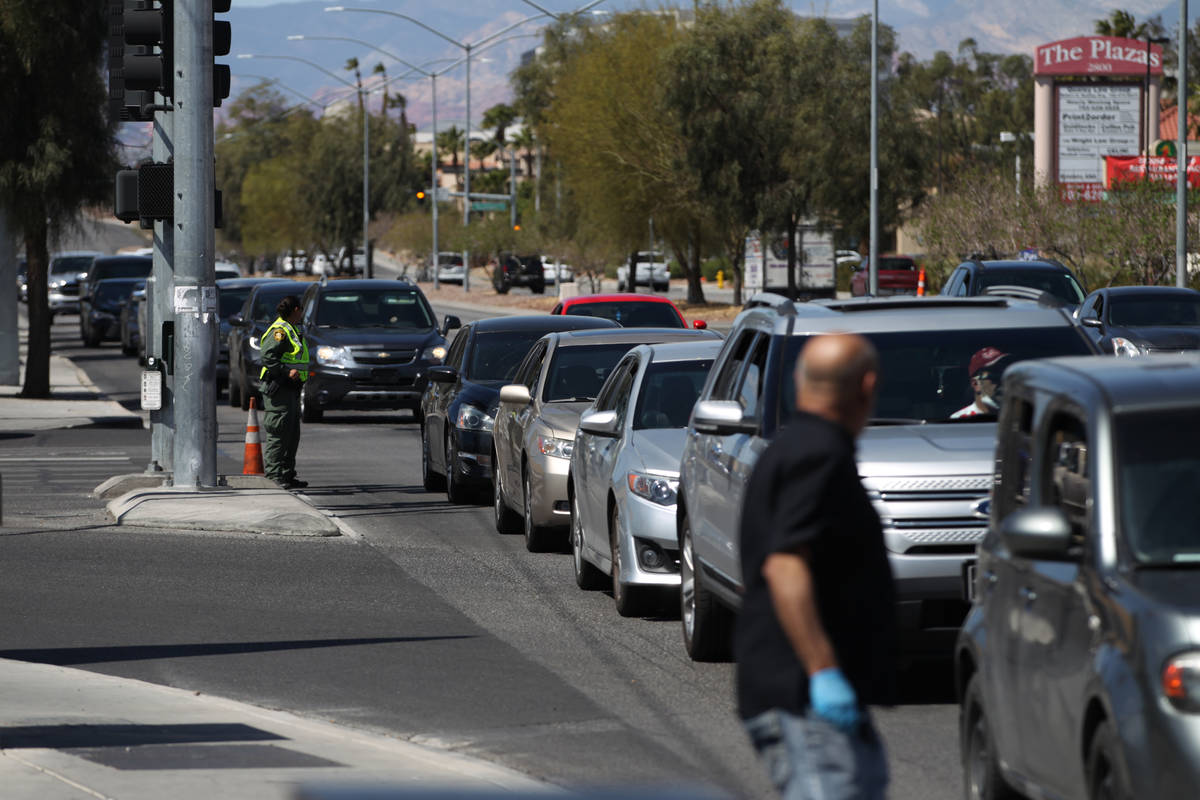Las Vegas facing a potential crisis with evictions
Five months after getting furloughed because of the coronavirus pandemic, Bradford Cook Jr. is running out of options.
The out-of-work MGM Grand electronics technician is collecting state unemployment benefits, but they aren’t enough to cover the rent on his Las Vegas house, and he doesn’t want a roommate living with him and his kids.
He told his property manager he will probably move out soon, figuring it’s better to look for a place now than to wake up one morning with a notice on the door telling him to pay up or leave, something observers fear could happen all over the valley.
Las Vegas is facing a potential evictions crisis amid enormous job losses sparked by the pandemic, the high number of renters, the lifting of Nevada’s eviction freeze and the recent expiration of federal unemployment benefits, which make up the vast majority of income for many unemployed Nevadans.
All told, a projected 249,700 people in Clark County, more than 10 percent of its population, are at risk of eviction starting next month, according to a report by the Guinn Center, a Las Vegas research group, and the COVID-19 Eviction Defense Project in Denver.
“It’s just sort of a bad confluence of events,” said Nancy Brune, the Guinn Center’s executive director.
Government funds have helped many Nevadans pay rent amid the pandemic, and a new state law, approved during a recent special session of the Legislature, lets courts delay eviction proceedings for up to 30 days to facilitate mediation between tenants and landlords.
Still, Southern Nevada renters face rough terrain.
“We know that we’re going to need more help,” state Treasurer Zach Conine said.
‘Long-lasting consequences’
The novel coronavirus, which causes a respiratory disease known as COVID-19, has sparked huge job losses around the U.S. and raised the prospects of a surge of evictions nationwide.
An estimated 30 million to 40 million people, around 10 percent of the country, could be at risk of eviction in the next several months, according to a recent report published by the Aspen Institute think tank.
Still, Brune figures that Las Vegas could get hit harder than other metro areas amid its especially severe economic fallout.
The outbreak has kept people home and away from crowds for fear of getting infected, threatening the economic foundation of Southern Nevada, a place where people come from around the country and the world, often by airplane, to gamble, eat, drink, party and network with masses of others in close quarters.
Las Vegas’ jobless rate, just 3.9 percent in February, shot up to 34 percent in April after the pandemic hit. By June, it had tumbled to 18 percent after casinos and other businesses were allowed to reopen following state-ordered lockdowns, but it still was among the highest in the nation, federal data shows.
Meanwhile, 47 percent of households in Clark County are renters, said Brune, whose at-risk eviction forecast assumes, among other things, that 38 percent of renters are unemployed.
In Nevada and across the nation, nonpayment of rent is the most common cause for eviction. Nevada’s Legislature last year extended the timeline tenants have after receiving an eviction notice to pay their overdue rent, move out or initiate a court case. However, tenants can still be evicted in as little as 15 days once their rent is late.
A 2019 Review-Journal survey of landlord and tenant attorneys across the nation showed that Nevada has one of the fastest eviction processes in the U.S.
Besides forcing people from their home, an eviction makes it harder for them to get housing in the future, as it can show up on a credit report or rental history search, said Jeff Tucker, an economist for home-listing site Zillow.
“It’s really traumatic, and it has long-lasting consequences,” he said.
Nevada State Apartment Association executive director Susy Vasquez has said landlords will pursue evictions against tenants who have not been in communication with management or did not lose their jobs but opted not to pay their rent amid the state’s eviction freeze.
Vasquez, whose members own or manage more than 700 apartment complexes statewide, said that based on member surveys the past few months, an estimated 4 percent of unpaid rent has stemmed from tenants who were able to pay but decided to essentially live for free.
Rental help
Las Vegas’ apartment market heated up for years with increased construction, lucrative investor purchases, rising rents and tight vacancy before the pandemic hit, though it hasn’t imploded amid the turmoil. Helped by unemployment benefits and rental assistance programs, about 90 percent of tenants statewide have been able to pay their monthly rent during this pandemic, according to Vasquez.
But with extra jobless benefits “at a standstill” and Nevada’s eviction freeze winding down, “we expect these numbers will change,” she said in a recent news release.
The $2 trillion-plus federal Coronavirus Aid, Relief and Economic Security Act, approved in March after the pandemic shut down much of the economy virtually overnight, provided $600 per week to masses of unemployed workers on top of their regular state jobless benefits, which in Nevada top out at $469 per week for traditional filers.
The federal payments recently expired without congressional renewal despite fears that the cutoff could contribute to increased homelessness. President Donald Trump is calling for $300 a week in federal unemployment benefits coupled with an optional $100 a week from states.
Gov. Steve Sisolak, who ordered casinos and other businesses closed in March to help contain the virus’ spread, temporarily halted evictions and foreclosures that month as well. The order did not give tenants a green light to live for free, nor did it dictate how missed checks would be repaid if people fell behind on their rent because of the turmoil.
The governor ordered a gradual lifting of the moratorium in late June, clearing the way for residential foreclosures and evictions to resume in full Sept. 1.
When he announced the moratorium’s end, his office also unveiled plans to provide $30 million in residential rental help. The federally funded grant program was launched last month.
According to the state, about 8,400 applications were filed the first two weeks.
‘Up in the air’
Cook, the MGM Grand worker, pays $1,360 in rent for his house off Cheyenne Avenue near U.S. Highway 95. He was looking to buy a home before the pandemic hit and MGM furloughed him in mid-March.
On July 20, his manager emailed Cook and others to say there were no plans to recall them to work anytime soon. He suggested that they apply for an employee emergency grant fund “as soon as possible” if they hadn’t already.
A 40-year-old Navy veteran from Detroit, Cook received about $3,000 per month in state and federal unemployment benefits. That’s now dropped to around $1,200 to $1,300 a month, he said.
Cook, who shares custody of his 10-year-old son and 6-year-old daughter, has found some affordable housing, albeit in areas with a noticeable police presence, he said.
For now, he plans to move but doesn’t know where he will go.
“Everything about our lives is pretty much up in the air right now,” he said.
Contact Eli Segall at esegall@reviewjournal.com or 702-383-0342. Follow @eli_segall on Twitter. Review-Journal staff writer Michael Scott Davidson contributed to this report.
RELATED














































